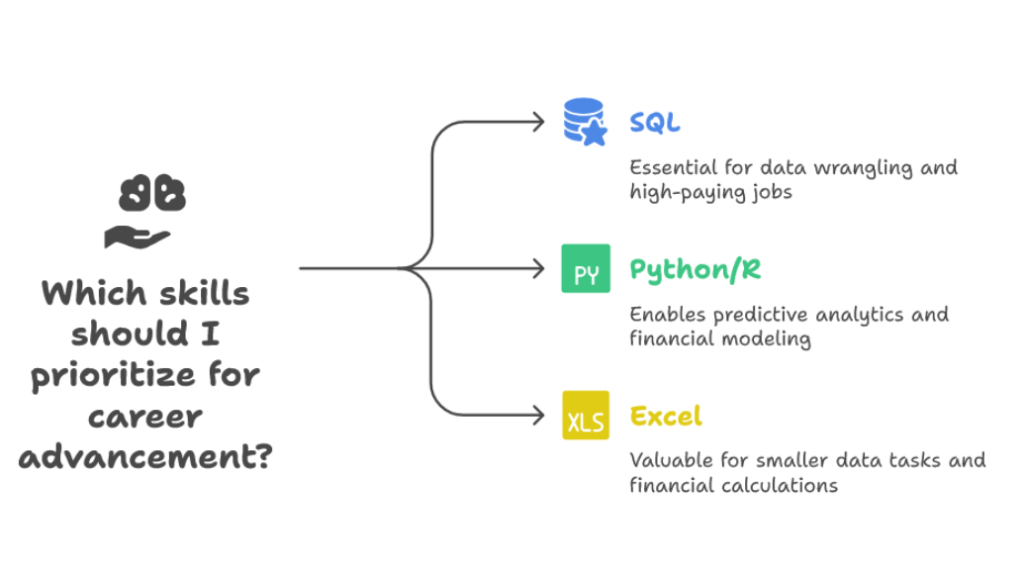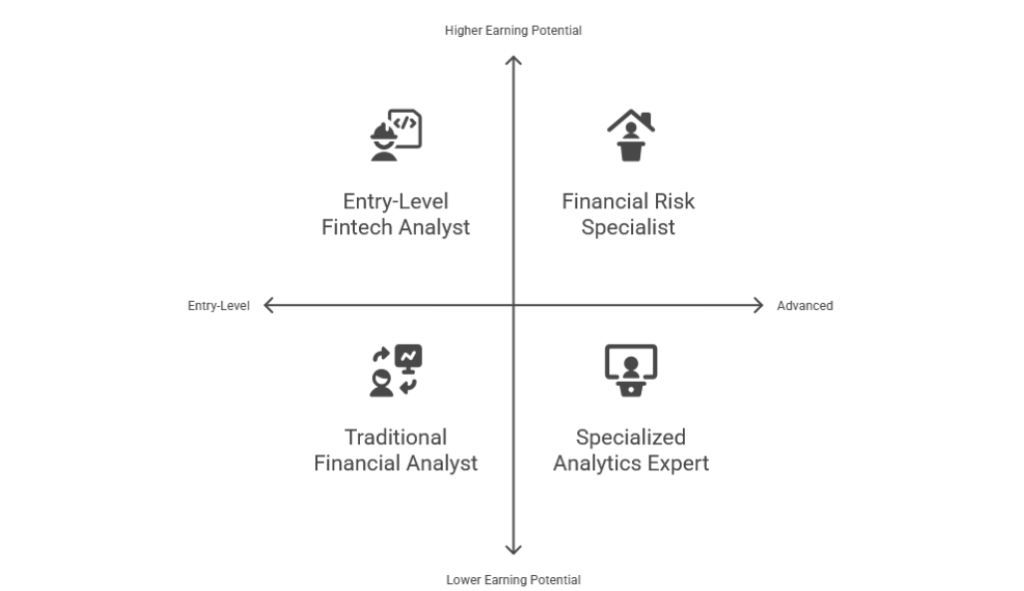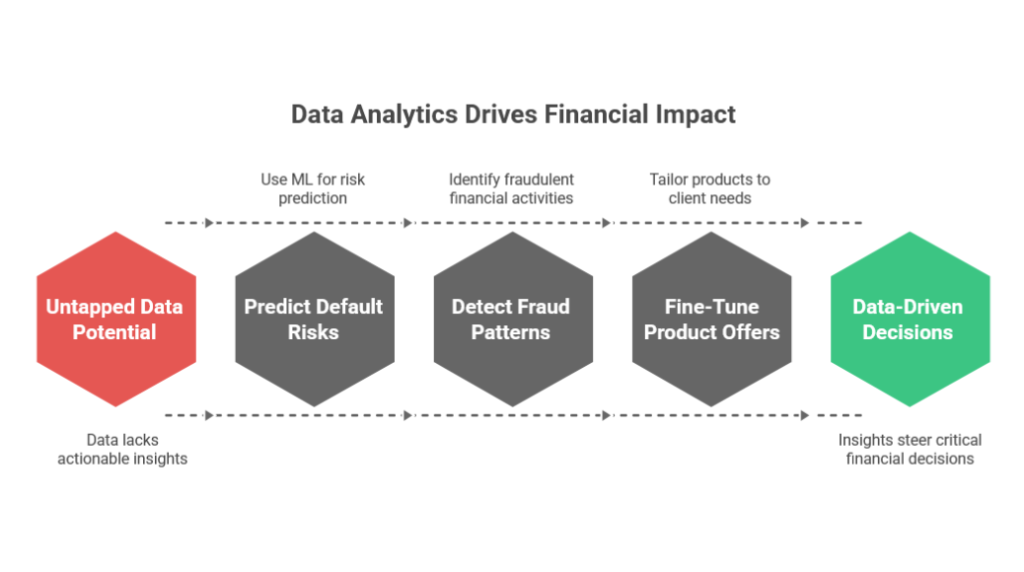
Why Financial Data Analyst Jobs Are My Next Big Adventure
I still remember the moment I realized how critical data had become in the finance world. There I was, casually exploring financial data analyst jobs for my future, and I thought, “This is my next big adventure!” Because let’s be honest, I’m all about excitement and growth. Whenever I look deeper into these roles, I ask myself five big questions in a single breath: what qualifications are needed, how much can I earn, what’s in a typical day, how fast is this field growing, and where do I actually find these roles?
Experience Rapid Career Growth

I love that demand for data pros is skyrocketing, especially in finance. According to the Bureau of Labor Statistics, financial analysts across the board are projected to see a 6 percent job growth from 2024 to 2034, which is faster than average (BLS). Even more exciting, data analysis positions in the finance industry are expected to expand as institutions bring on mega-volumes of data to fine-tune risk management, personalize client experiences, and stay nimble in a competitive market. For someone like me who wants a dynamic career, it all sounds irresistible.
It’s pretty cool to see how finance experts, like some of the types of financial advisors I’ve been reading about, lean heavily on data insights for portfolio management and strategic decisions. That kind of collaboration shows just how versatile these roles can be. Why settle for a sluggish career path when I can jump into one that’s firing on all cylinders?
Master Key Skills And Tools

One thing I’ve realized is that skills like SQL (Structured Query Language), Python, or R are basically non-negotiable. Thousands of job listings emphasize SQL for wrangling those enormous data sets, and advanced SQL wizards earn median salaries well above $87,000, according to Northeastern University (Northeastern University). Right alongside SQL, learning Python or R can help me stretch into predictive analytics and specialized financial modeling.
While complex statistical software often takes center stage, I still appreciate how good old Excel remains valuable for smaller data work. In fact, some wealth managers or a personal financial consultant might rely on spreadsheet-based calculations and pivot tables. That means I can combine the classic with the cutting-edge to stand out even more.
Explore High-Earning Potential

If I’m putting in the hours, it’s natural to want great returns. Financial analysts’ median wage was around $101,350 in May 2024, and financial risk specialists earned even more, at $106,000 in the same timeframe (BLS). And salaries can climb higher if I focus on risk management or specialized analytics.
The finance sector, especially fintech, is known for its generous pay. Entry-level financial analysts in fintech see an average of $64,000, but that can grow quickly when stock options, bonuses, and advanced responsibilities come into play (CareerFoundry). Whether I’m writing code for risk models or analyzing portfolio trends, the potential for financial reward is a huge draw.
Leverage Analytics For Real Impact

Data isn’t just about numbers on a screen. Each chart or trend line can steer critical decisions in wealth management, investment planning, and risk assessment. Financial institutions now rely on machine learning algorithms to predict default risks, detect fraud, or even fine-tune which products to offer clients (Pragmatic Institute). For someone like me who wants to make a genuine difference, being the go-to data specialist means I can spotlight opportunities and steer important changes with each analysis.
Working on financial data analyst jobs doesn’t limit me to one segment of finance. I’ve seen them pop up in everything from big banks to small advisory firms. That variety means I’ll likely find a niche where I can shine and keep building my expertise.
Expand Your Opportunities In Finance
Finally, these data-centric roles open doors to plenty of long-term growth. Once I’ve nailed the fundamentals and gained a few years of experience, I can pivot into other high-level positions. Maybe I’ll lead a business intelligence team or become a specialist in advanced forecasts. The finance industry thrives on data-driven insights, so stepping into this arena now sets me up for bigger adventures down the road.
It’s also freeing to realize that financial data analysis often pairs nicely with broader wealth management goals. Whether it’s working with an investment planner or pinpointing the right diversification strategy, data analysis keeps everything evidence-based. That’s crucial for high-net-worth individuals looking to protect their assets and plan for future generations.
I’m excited to see where the journey goes. The field keeps growing, the money’s compelling, and the real-world impact is massive. If you’re as intrigued as I am, consider leveling up your skill set in SQL, R, or Python. Then keep an eye on the rapidly expanding market for financial data pros. Feel free to share your own thoughts or hurdles in the comments. Who knows? My next big adventure might be yours too.
Recent Posts
Financial Advisors in Los Angeles to Consider
Finding the right financial advisor can be a pivotal step...
Financial Advisors in New York to Consider
Selecting the right financial advisors in New York can play...





